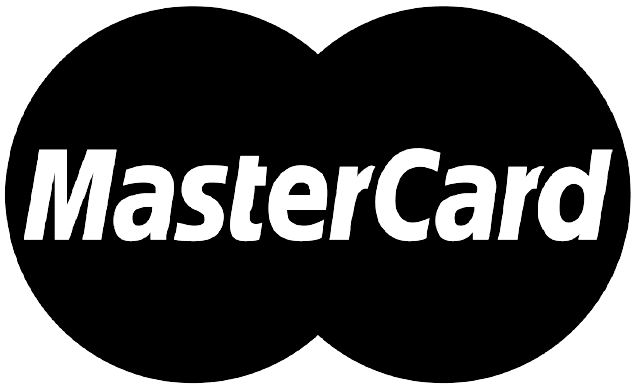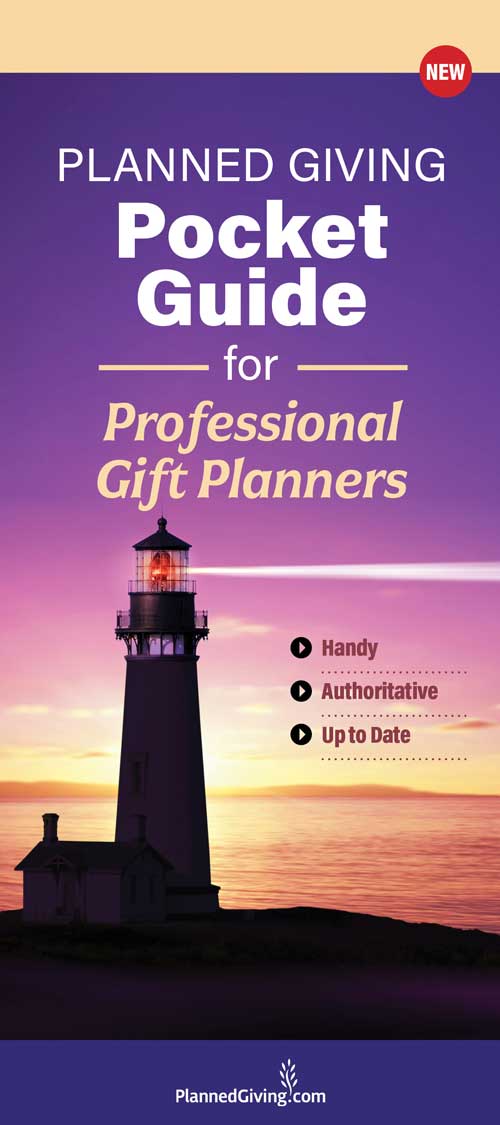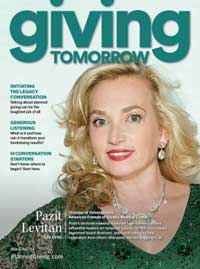Ask a Quality Question, Get a Quality Answer
A Primer for Getting the Most Out of Your Next Donor Interview
Knowing how to ask the right questions is an essential skill — one that can translate to success in all areas of your career and life. Good questions are the key to getting the kind of valuable information you need from a donor interview to write engaging, inspiring stories.
But sometimes, it can be a real struggle to generate a list of high-quality questions. How do you get donors to open up about their lives, their gifts, and their passion for your mission?
- What do you ask?
- Which questions are relevant?
- Which questions are appropriate?
- Which questions cross the line?
- What do you do if a subject isn’t talkative?
Ask a Quality Question, Get a Quality Answer
We’re going to show you a guaranteed process that will help you produce thought-provoking donor interview questions that generate worthwhile, comprehensive answers.
And the best part is, whether it’s an interview for a donor story, annual report, board report, newsletter story — even a job or candidate interview — all of these skills will translate.
Let’s get started.
Step 1: Do Your Research to See What Questions to Ask
Few people want to hear this, but to properly prepare for an interview, you’ve got to do some research first.
Sure, there are times you’ll have to wing it — like at a donor function, when your boss brings someone over and says, “You’ve got to hear her story — we need it in the next newsletter!” But to get the facts, the quotes, and the raw emotion that lead to the best stories, you need to be prepared with some background information as a starting point.
To get started, look no further than your coworkers. Are you interviewing a well-known volunteer? A faithful donor? Start by finding find out if any of your peers have worked with her, and what they can tell you. This can be a great way to gain insight not only into your donor’s history, but her personality, too. And while you’re at it, poll your co-workers about questions they would ask your interviewee; they may think of things you missed.
Next, do a simple internet search of the person’s name. Use a few limiting factors to narrow it down, like: “Jane Doe, Big University Vice President” or “John Doe, Cub Scout Pack Leader, Anytown, PA.”
Also peruse social media accounts, such as Facebook and LinkedIn, for career and background information to guide you. LinkedIn might tell you the vice president was among the first to break the glass ceiling, or you may learn that John Doe is a self-employed artist who illustrates comic books and lives on an organic farm.
Armed with that information, you could ask about the challenges the vice president faced moving up, or the types of comics the artist enjoys drawing.
By making a concerted effort to do research first, you’ll be a step closer to gaining your interviewees’ trust. They’ll see you put some effort into learning about them, and that you’re taking an active role in the storytelling process.
Step 2: Consider the Nature of the Story; Do the Questions Help Evolve It?
Now think about the purpose of the story. Are you exploring the reason for a donor’s gift? Tapping into nostalgia for heartwarming content that converts? Writing a story as a thank-you for someone’s support? Jot down your reasons, and see what questions naturally come to mind when you explore them.
Thinking about the weight of the subject matter, too, will help you form questions and guide the interview. Are you celebrating a pet adoption or interviewing a survivor of spousal abuse? Use your discretion, and always tread carefully where trauma and loss are involved. Remember, you’re dealing with a fellow human being — not a number.
Also consider the following:
- The personality of the person you’re interviewing. Your subject may be a woman of few words or a man with the gift of the gab; friendly and inviting or withdrawn and distracted. Some personality traits become apparent only in the moment, so unless you’re interviewing someone you’re familiar with, be ready to change gears on the fly.
- Your organization’s mission, style, and tone. Are you a spunky start-up animal-rescue group, or a purely scientific stick-to-the-facts organization seeking a cure for Alzheimer’s Disease? Check your style guide, and read previous publications to see how other stories have been crafted. A few lighthearted questions might be appropriate for a story about a puppy rescue, but likely won’t work for a story that revolves around a dementia patient.
[block id=”postad-mgt-and-paper”] [gap]
Step 3: Brainstorm Your Questions
Given what you now know, it’s time to find a way to find out what you don’t know!
To keep the interview on track, write out a list of questions before you sit down with your subject.
Keep the queries short and simple. Don’t write complicated, multi-part questions — you and your subject both risk losing focus. And whatever you do, don’t try to wing it. That’s a recipe for failure at worst, and mediocrity at best. Take your written questions with you!
Some of the questions will be obvious. In journalism, they’re called the “Five Ws and How”:
- Who — Who are the characters in your story? Get names, check spellings.
- What — What happened? What are the basic facts of the situation?
- When — When did your story happen? It may include multiple timelines.
- Where — Where does the story take place? It may involve multiple locations.
- Why — Why did a certain action happen? Why did you make a gift?
- How — How did it make you feel?* How did you find out about our nonprofit?
The great thing is that none of these questions can be answered with a simple “yes” or “no.” They will all reveal important details that your story needs. Just phrase them in a way that feels comfortable, and you’re already halfway there.
One very important point: You may think you already know the answers to some of these “easy” questions. Find a way to ask them anyway. Redundant? Possibly. But asking again ensures you have the most accurate, up-to-date information available.
“But I already checked LinkedIn,” you say. “Why ask again?”
Because LinkedIn profile details are not always current. “Facts” listed on websites and social media platforms might be opinions, inaccuracies, or outright lies. Media reports sometimes exaggerate or take things out of context. Use your research as a starting point — not the definitive guide to your subject. Always verify the details with the source.
And if you’re feeling uncomfortable, or you’re dealing with an extremely sensitive situation, consult with someone who’s above your pay grade for advice on how to proceed.
*A Word of Caution
Please use discretion when asking “How did it make you feel?” questions. There’s a special place in hell for the interviewer who forces their subject to live through raw, difficult emotions just to get a good story.
Sometimes those emotions become obvious simply through the context of a story. Other times, you can show them in little details when you write the story: “John’s voice cracked when he remembered the day his wife got her diagnosis,” or “Betty doesn’t like talking about the day she and her daughter fled her abusive husband.”
Step 4: Ask Open-Ended and Quirky Questions
Some interviewees are tough to crack. Given the chance, they’ll give monosyllabic answers instead of detailed replies. That’s why phrasing is important. Sometimes, leading or open-ended questions produce better answers:
- Are you happy you made the donation?
Vs.
- How has making the donation made you feel, and why?
And if you don’t get a satisfactory response, ask for more:
- “That must have been amazing! Can you describe for me how it made you feel?”
- “That must have been difficult. What was the biggest challenge of getting through it?”
Sometimes, to let the subject’s personality really shine through, you may want to ask quirky questions, such as, “What’s your favorite TV show? What kind of music do you like? What do you do for fun? What’s your favorite color? Vanilla or chocolate? Are you a dog person or a cat person?”
Keep your questions (and your interview) conversational, but don’t get too far off the rails. When you find things getting totally off topic, or your interviewee goes over the river and through the woods to arrive at an answer, don’t be afraid to gently nudge things back on track. Circle back around to your original question, or change the subject entirely by asking something different.
Don’t be afraid to go off-script. Sometimes, the interviewee’s answers may prompt you to think of other questions. That’s OK — an interview should be an organic process, not a rigid, structured event.
Finally, here’s one last question tip, courtesy of former FBI negotiator Chris Voss: Repeat the interviewee’s answer back to them, but change the inflection at the end to turn it into a question. For instance:
Interviewee: “That was the hardest decision I ever made.”
Interviewer: “It was the hardest decision you ever made?”
This is a technique called “mirroring.” It’s a psychological trick — it shows your subject that you’re listening, but prompts them to repeat their answer, often with much more detail. So, in the above exchange your subject might repeat their answer again, but add more:
Interviewee: “Yes, the hardest decision I ever made. I had to choose between my family and my lifelong passion, astronomy. But in the end, I already knew my answer: I was going to pick my family, and later, when I retired, hoped I’d have time to pursue astronomy again.”
Sample Questions
Now that we’ve covered the basics, here’s a list of 31 sample questions you can adapt to your own interviews.
These are not meant to be asked in any particular order, or even in every situation. Some of these questions may sound trivial. Remember, they are meant as opportunities to keep the conversation going, change the pace or direction of the interview, and uncover small details to make the donor more relatable to the reader. You don’t need to ask every question:
[Download these questions from this page.]
- What led you to become involved with [ORGANIZATION NAME]?
- What is something you’d like to see your gift [and/or the ORGANIZATION NAME] accomplish?
- What motivates you to stay involved with [ORGANIZATION NAME]?
- What inspired you to give your gift?
- Has anyone else in your life played a role in supporting your dedication to us?
- How did giving your gift make you feel?
- Do you have any advice for people considering a gift to [ORGANIZATION NAME]?
- Do you have any advice for people who want to [SOMETHING PARTICULAR TO YOUR MISSION]?
- Where did you grow up?
- How do you feel your childhood shaped you?
- What is something you believed as a child that you view differently today?
- Do you have any advice on life, learning, and success that you can share?
- What is the biggest change you’ve see between [START OF PARTICULAR CAREER/HOBBY/TIME PERIOD] and today?
- What is the biggest change you’ve seen in your lifetime?
- What do you do to relax? What are your hobbies?
- Can you name something that your parents, or someone else important in your life, taught you that has served you well?
- What advice would you offer for someone to follow in your footsteps as a [CAREER, TITLE, ACCOMPLISHEMENT, ETC.]? (For example: “As the CEO of a Fortune-500 company, what advice would you give to those who wish to follow a similar career path?” or “As a woman who has balanced both career and family, what advice would you give for other working mothers?”)
- If you could change one thing about [SITUATION THAT AFFECTS WORLD, MISSION, ETC.), what would it be?
- When you experienced [EVENT, VICTORY, TRAGEDY, ETC.], what were you thinking at the time? How were you feeling?
- What is your favorite memory of [CAREER, CHILDHOOD, EVENT, ETC.]?
- What is something people would be surprised to learn about you?
- How did you meet your spouse? Can you tell me a little about that?
- Of all the places you’ve traveled, can you name three that really stand out, and what made them special or different?
- What is something you wish [CHILDREN, THE CURRENT GENERATION, ETC.] learned today that you learned as a child?
- What one piece of advice would you give to future generations?
- Where did you go to school as a child? What were the circumstances that led to your attendance there?
- What’s your favorite food?
- What’s your favorite drink?
- What’s your favorite color?
- What’s your favorite smell?
- Can you think of any questions I missed? Are there any questions you would have asked if our roles had been reversed?
Learning how to negotiate (visit our library of negotiation articles) and learning how to become a nonprofit leader will strengthen all the skills you need to conduct a good interview.






